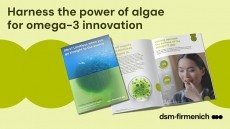Vox Pop: What do you think of nootropics?
Word on the street is the topic of nootropics is popular among workers in the financial sector, who require alertness and focus as financial instrument prices fluctuate by the second. “I hear about it every now and then [at work],” said one respondent we approached, who works at a private trading firm in Chicago.
“My understanding is it’s currently a fad,” said another, also in the financial sector. But ‘nootropics’ only refers to substances that may improve cognitive performance—it doesn’t specify whether it’s active ingredient is a supplement, or a drug.
And many of our respondents on the street associate the term with drugs. “I don’t think I would buy them,” one respondent said. “I’ll have to do more research, and the side effects may outweigh the short-term benefits.”
Cognitive function ingredients range from omega-3s to vitamins to tea compounds
However, there are a plethora of naturally-derived or synthetic ingredients, all non-drug, that have been studied for its cognitive performance enhancing benefits (we list 18 here).
In one of the top-rated subreddits under r/Nootropics, the drugs bromantane and piracetam is recommended side-by side with omega-3 and vitamins D and B6 /B12. Could the blurring between cognitive-boosting supplements with psychostimulants and anxiolytic drugs be deterring potential supplement consumers?
Educational outreach that rely more on science than claims and brand ambassadorship may be a key for nootropic supplement makers, one respondent opined. “I don’t think I would actively seek it, but if I hear about it from someone I trusted, I might be willing to give it a try,” he said.
















